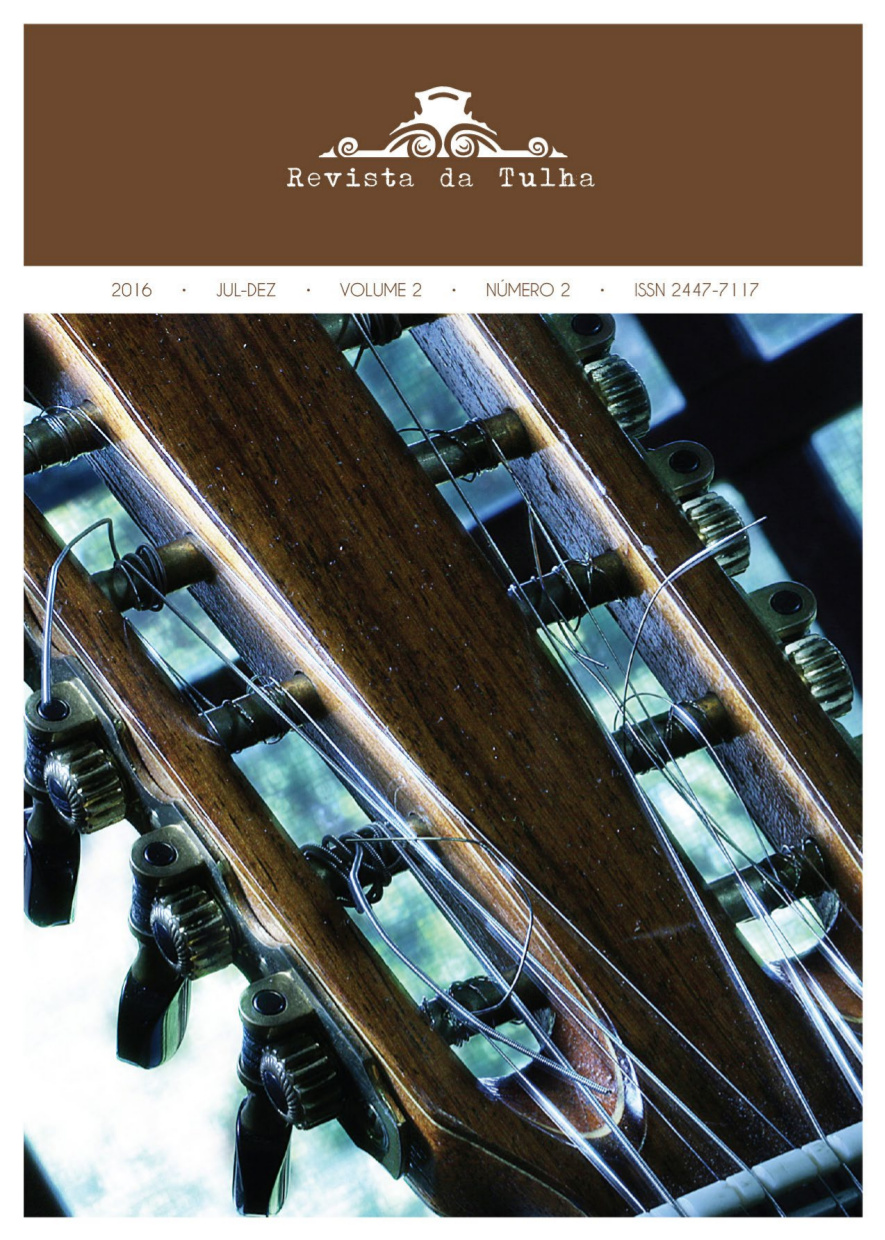ACOUSTIC GUITAR AND NATIONAL IDENTITY: THE “MORAL” OF THE INSTRUMENT
DOI:
https://doi.org/10.11606/issn.2447-7117.rt.2016.120654Keywords:
Guitar, Musicology, Discourse, Identity.Abstract
The text analyzes part of the literature on the history of the guitar in Brazil, during the first decades of the twentieth century, in the context of complex social and political relations of the First Republic in the city of Rio de Janeiro. The central idea is to discuss the notion of guitar-art that would have arisen from the tradition of European classical guitar (as a discourse construction), as opposed to other guitar practices not mentioned in instrument’s historiography or, when it does, is by highlighting its gradual “moral” acceptance and distance of stigma of bohemian and vagrancy. The text concludes questioning how the guitar set up as a means of implementation and embodiment of social representations, we call instrument-document, violently depleted (because, in the late nineteenth to the twentieth century it was synonymous with marginality), precariously employed, with little or no formal education (there was nowhere to learn to play) and mainly self-taught (learned in practice and oral tradition).
Downloads
Downloads
Published
Issue
Section
License
Authors retain copyright and grant the journal the right to first publication, with the work licensed under the Creative Commons Attribution License CC-BY-NC:
This work is licensed under a Creative Commons Attribution 4.0 International License.



